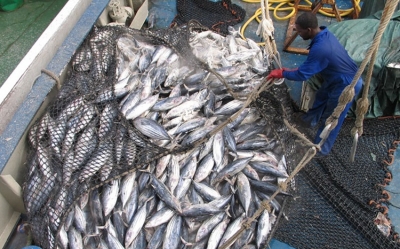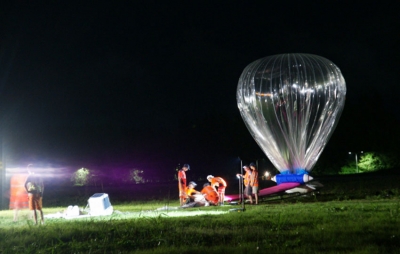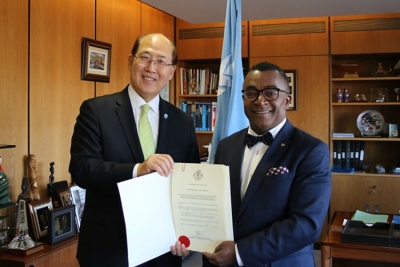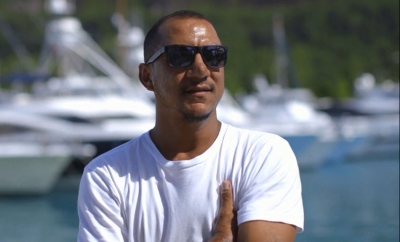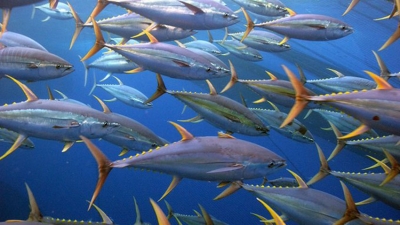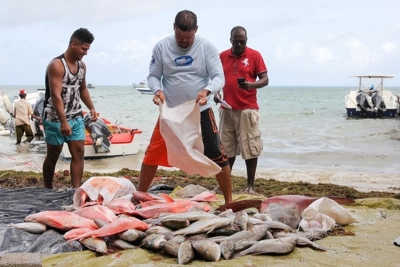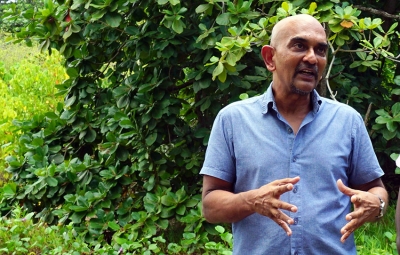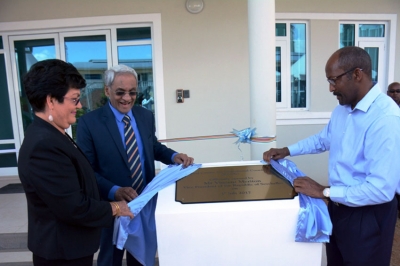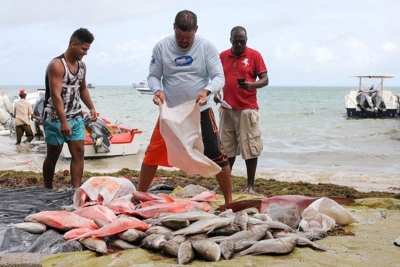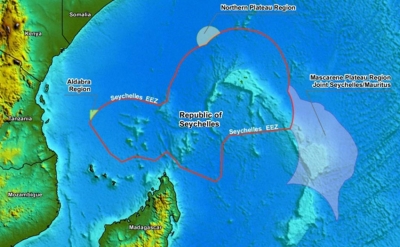
Super User
SNA: Seychellois expert says EU overfished tuna; EU ambassador says union is investigating
(Seychelles News Agency) - A Seychellois fisheries expert has expressed concerns over what he called the European Union's overfishing of yellowfin tuna in the Indian Ocean. The EU ambassador to Seychelles, meanwhile, says that the union is still investigating the official figures of 2018's Yellowfin catch obtained from its flagged vessels, with any amount overfished to be to reflected in future paybacks.
Seychelles Nation: Seychelles chosen as the ideal place for stratospheric balloon launch
(Seychelles Nation):The Seychelles International Airport has been chosen as the ideal place for the launch of stratospheric balloons in a research project being undertaken by the National Centre for Space (CNES) based in France in collaboration with the Seychelles Meteorological Authority.
SNA: Seychelles signs 4 more legal acts designed to prevent maritime pollution by ships
(Seychelles News Agency) - Seychelles has shown its commitment to protecting the island nation's marine environment after signing for four more legal acts of an international convention for the prevention of maritime pollution (MARPOL), a top government official said Thursday.
Fish Aggregating Devices – a potential threat to sustainable fisheries in the Seychelles
Fish aggregating devices are objects placed on the ocean surface to attract tuna to make it easier for fishermen to fish. The Fish Guard Initiative interviewed Keith André to find out how it's harming the traditional Seychelles fishing industry.
(Today in Seychelles) Spanish Seiners overfishing Yellowfin Tuna - IOTC Draft Report
UK non-profit organisation Blue Marine Foundation has expressed concern following an Indian Ocean Tuna Commission report, Today in Seychelles has reported in article published on Friday 22 November 2019. The foundation says the new data is a worrying problem for the status of Yellowfin stock.
SNA: Fishermen on Seychellois island voluntarily close down fishing zones in a bid to protect stock
(Seychelles News Agency) - An area around the main harbour of Seychelles’ Praslin island, the nation's second-most populated island, has been demarcated as a voluntary fisheries closure zone in a bid to help maintain the fish stock.
The project, an initiative of the Praslin Fishing Association, aims to conserve part of the Baie St Anne by limiting fishing activities from taking place in that area for a period of time. The government has welcomed the voluntary project.
Three yellow buoys labelled ‘Fisheries Closure’ are indicators of the closure zones, which went into operation on November 1. All vessels are requested to keep a safe distance and to navigate with extreme precaution when approaching the demarcated areas.
The initiative aims to help maintain the fish stock in that area and give ample time for the stock to grow. The closure will remain in force until April 30, 2020.
"We as fishermen have noticed that the size of fish is decreasing and so is the amount. We have taken examples of similar projects that have been carried out in other places and have had interesting results,” said Darrel Green, the chairperson of the Praslin Fishers Association.
He said that they were inspired by a similar project carried out in Rodrigues, an autonomous island of Mauritius, where a fisheries closure has been placed on octopus.
Fishermen on Rodrigues noticed that over time, there was a significant reduction in their catch because of unsustainable fishing practices and the effect of climate change on the reefs. The community started a voluntary closure of the octopus’ fishery for two months of the year. As a result, there has been an increase in the catch during the past four years.
Green said that the voluntary closure being carried out on Praslin “is not a project through which you will see the result in six months.”
He added that the association wants the closure to be something annual.
The project is mainly targeting artisanal fishermen who make a living off species living on the reef. During the months the bay will be closed, these fishermen will have to fish elsewhere.
“This is the initiative of a group of people and I think that fishermen in the Baie St Anne area need to realise that this is an idea coming from the community and everyone needs to accept and respect the initiative,” said Green.
Another aspect of the project is to serve as an educational model for the fishermen community on Praslin.
“We don’t need the government to always come and tell us to protect our own resources. As fisherman we need to put our heads together to realise this project and conserve what we have for the future generation,” said Green.
Fisheries is the second top contributor to the Seychelles economy.
The Ministry of Fisheries and Agriculture has welcomed the project. The principal secretary of the fisheries department, Jude Talma, said in a previous interview that this is a good initiative.
“For many years now, we have been talking about sustainable fishing and it is finally getting through to the fishermen. This sector really depends on them and the action they take. I would like to congratulate them for taking this step,” said Talma.
Over the years, Seychelles, an archipelago in the western Indian Ocean, has put a lot of emphasis on sustainable fishing. One of the initiatives is a marine spatial planning exercise to expand protected areas and a fisheries management plan for the Mahe Plateau to progressively move from an open-access fishery to a more controlled fishery.
Today's the big interview with Dr. Nirmal SHah
This week, Seychelles' daily newspaper "Today in Seychelles" spoke to Dr. Nirmal Shah, Nature Seychelles' Chief Executive for its Big Interview. Dr. Shah is a well-known Civil Society leader and change-maker who has 35 years experience working nationally and internationally in various fields including sustainable development, biodiversity conservation, coastal zone management, fisheries, ecotourism, climate change, environmental education, and insect, bird and marine research.
Press Release, Indian Ocean Commission: The Seychelles Regional Centre for Operational Coordination (RCOC) operating 24/7
(Indian Ocean Commission) The Seychelles Regional Centre for Operational Coordination (RCOC) is now operational 24 hours a day, 7 days a week from 23 September.
SNA: Indian Ocean fishermen gather in Seychelles, discuss climate change, Blue Economy
(Seychelles News Agency) - Artisanal fishers from the Indian Ocean countries have gathered in a training session in Seychelles to identify skills needed in co-management, leadership and communication to tackle common challenges.
The three-day training from September 11-13 is being organised by the Federation of Artisanal Fishers of the Indian Ocean (FPAOI) and the Seychelles Fisheries Authority (SFA) at the Coco D'Or Hotel in the northern Mahe district of Beau Vallon.
The chairman of the Federation, Seychellois Keith Andre, told journalists that the fishermen in the region are facing common challenges such as climate change which needs to be dealt with collectively.
“We have found that in our previous training certain countries have surmounted certain challenges that others are still struggling with and we thought that by sharing experiences and knowledge we could find the solution at the doorstep of our neighbours,” said Andre.
He added that by meeting collectively “we have managed to accomplish many great things such as pushing for a resolution to reduce industrial fishing by big operators which is often not sustainable.”
The training, which is also helping with the establishment of a line and track fishery co-management plan, is sponsored by the Technical Centre for Agricultural and Rural Cooperation ACP-EU as ongoing support since 2017.
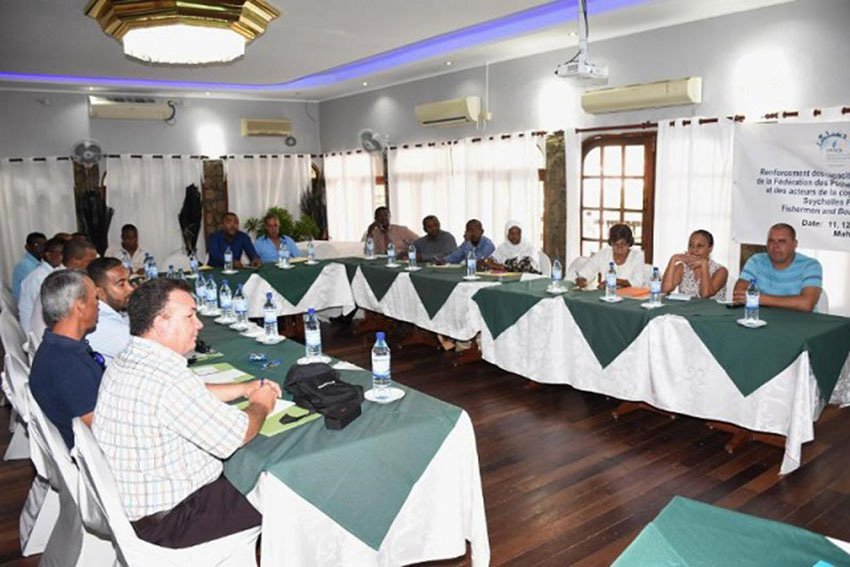
The three-day training is being organised by the Federation of Artisanal Fishers of the Indian Ocean (FPAOI) and the Seychelles Fisheries Authority. (Joena Meme) Photo License: CC-BY
Apart from climate change, Andre said that the Blue Economy concept is also a threat to fishermen.
“All of a sudden everybody wants a chunk of the ocean and it is being done at the expense of the fishermen. In the name of protection, everybody wants the fishermen out to protect the reef. This is why we are providing training in co-management and leadership as the right management system can allow our profession to co-exist with other activities,” he said.
Fisheries is the second top contributor to the economy of Seychelles, a group of 115 islands in the western Indian Ocean.
The chairperson of the Seychelles’ Roche Caiman Fisherman Association, Florant Tirant, told SNA that the training has taught him that fishing is not only about going out to sea to fish and then sell what you have caught.
“There is more to it than that. I have been taught that with the right management skills I can move from being a small fisherman to one who is now capable of managing my boat, finance as well as leading and mentoring other fishermen through an association,” said Tirant.
The training is also focusing on building the knowledge of fishermen and their negotiating skills and are providing success stories to encourage others to take up this noble profession.
SNA: Seychelles approves expansion of territorial waters by nearly 15,000 square kilometres
(Seychelles News Agency) - The Cabinet of Ministers has approved the incorporation of the extended continental shelf of the Northern plateau region under the Seychelles’ jurisdiction. The Seychelles’ territorial waters were extended by over 14,840 square kilometres, a territory about 92 times the size of the main of Mahe, by a UN Body in 2018. The Northern Plateau is located at the northern extremity of the Mahe plateau.
